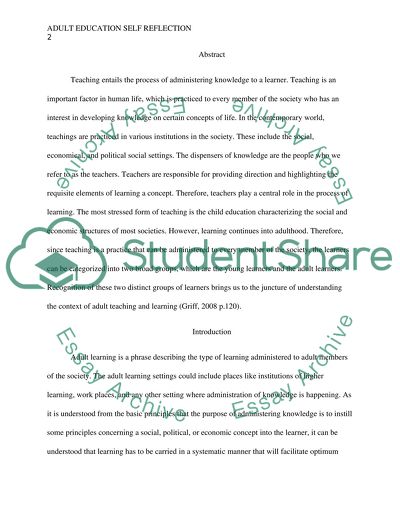Cite this document
(“Adult education self reflection Essay Example | Topics and Well Written Essays - 1500 words”, n.d.)
Retrieved from https://studentshare.org/education/1443988-adult-education-self-reflection
Retrieved from https://studentshare.org/education/1443988-adult-education-self-reflection
(Adult Education Self Reflection Essay Example | Topics and Well Written Essays - 1500 Words)
https://studentshare.org/education/1443988-adult-education-self-reflection.
https://studentshare.org/education/1443988-adult-education-self-reflection.
“Adult Education Self Reflection Essay Example | Topics and Well Written Essays - 1500 Words”, n.d. https://studentshare.org/education/1443988-adult-education-self-reflection.


